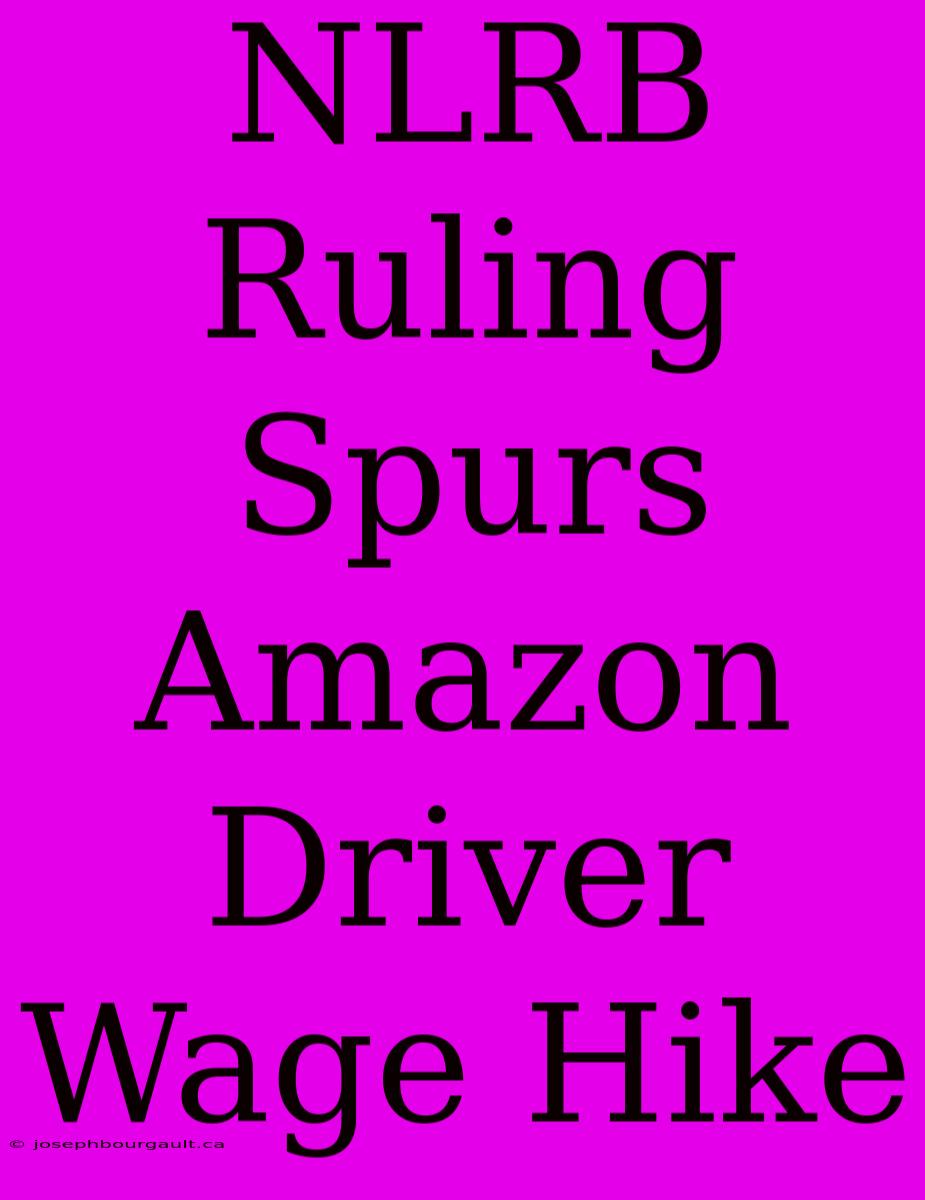NLRB Ruling Spurs Amazon Driver Wage Hike: A Victory for Workers or Just a PR Move?
The National Labor Relations Board (NLRB) has ruled that Amazon delivery drivers are employees, not independent contractors. This landmark decision, which could have significant implications for the gig economy, has already led to Amazon announcing a wage increase for its drivers. However, the question remains: is this a genuine victory for workers or simply a strategic PR move by the e-commerce giant?
The NLRB Ruling: A Shift in Gig Economy Landscape
The NLRB's decision stems from a complaint filed by the International Brotherhood of Teamsters, arguing that Amazon drivers should be considered employees due to the company's control over their work. The ruling recognizes that Amazon exercises significant control over the drivers' schedules, routes, and even the vehicles they use, thereby negating the notion of them being independent contractors.
This decision is significant for several reasons:
- It challenges the traditional gig economy model: This ruling could set a precedent for reclassifying other gig workers, such as Uber and Lyft drivers, as employees.
- It potentially opens doors for unionization: By recognizing drivers as employees, they are eligible to join unions and collectively bargain for better conditions.
- It could lead to changes in worker benefits: As employees, drivers might be eligible for benefits like healthcare and paid time off, which are not currently offered under the independent contractor model.
Amazon's Response: Wage Hike and Worker Benefits
In response to the NLRB ruling, Amazon announced a wage increase for its drivers, ranging from $1 to $2 per hour. They also announced plans to offer new benefits, including paid time off and access to health insurance.
However, some critics argue that these changes are more about public image than genuine worker empowerment. They point out that the wage increase is still relatively modest and that the new benefits are less generous than what is offered to traditional employees.
**The key question is whether these changes are: **
- A true change in Amazon's labor practices or simply a temporary PR move to appease critics and avoid further legal challenges?
- A genuine effort to improve working conditions for drivers or a calculated strategy to maintain control over its workforce?
Moving Forward: The Impact of the NLRB Ruling
The NLRB ruling is a significant development in the ongoing debate surrounding the gig economy. While Amazon's response may be seen as a victory for workers, it remains to be seen how these changes will ultimately impact the lives of delivery drivers. The ruling has sparked conversations about the future of work and the role of the gig economy in the modern labor market.
**The true impact of the NLRB ruling will likely be felt in the coming months and years, as: **
- Other gig economy companies grapple with similar legal challenges.
- Workers continue to advocate for better conditions and increased benefits.
- The debate over the future of work continues to unfold.
The NLRB ruling is a step forward in addressing the precarious nature of gig work, but it's only the beginning of a larger conversation about the future of labor in a rapidly changing world.

